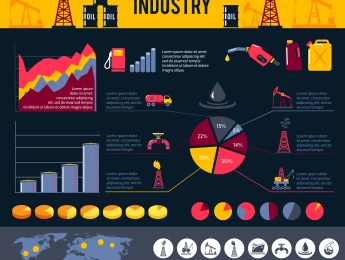Professional report-writing techniques are crucial for effective communication within the business environment. A well-crafted report is a structured document that conveys information, analysis, and recommendations clearly and concisely.
These techniques are important because they can facilitate informed decision-making processes within organisations. When written precisely, reports enhance understanding, reduce ambiguity, and allow stakeholders to make well-informed decisions.
Professional report writing involves careful consideration of the target audience, a logical and organised structure, and the use of appropriate language and tone. Additionally, adherence to a standardised format and attention to detail contribute to the credibility of the information presented.
Clear, well-structured reports showcase the writer's professionalism and contribute to the overall efficiency and success of business operations by ensuring that information is communicated effectively and comprehensively.
Upon completion of this course, participants will be able to:
- Skillfully compose reports that effectively attain desired outcomes or goals.
- Employ a methodical method to streamline the report-writing process.
- Organise information in a manner that systematically directs the reader through the content.
- Embrace an approachable writing style that fosters comprehension and sustains interest for the reader.
- Craft persuasive narratives by incorporating pertinent information and employing appropriate vocabulary to bolster your arguments.
- Assure that both specialised and non-specialized readers can swiftly comprehend your work.
- Revise your preliminary reports with ease and constructive feedback.
- Use diagrams, tables, and charts to reinforce and enrich the written content.
- Generate reports that effectively fulfil their intended objectives.
This course is designed for anyone responsible for writing bids or reports to secure stakeholder funding or for project management to celebrate successes. It would be most beneficial for:
- Bid Writers
- Project Planners
- Administrators
- Technical Report Writers
- Auditors
- Risk Assessors
- Secretaries
- Personal Assistants
- Funding Managers
- Partnerships Managers
- Business Analysts
This course uses a variety of adult learning styles to aid full understanding and comprehension. Participants will review various styles of real case study reports based on data and understand what differentiates a well-written report. They will discuss the pros and cons of various reporting structures and work together to understand how best to present the data to various types of stakeholders.
They will then work in groups on a project using case study data to create a well-written and accurate report, which they will present back as a role-play activity to secure project approval or increase donor funding.
Day 5 of each course is reserved for a Q&A session, which may occur off-site. For 10-day courses, this also applies to day 10
Section 1: How Reports Influence Decisions
- Understanding the role of reports in decision-making.
- Principles of effective report writing in finance.
- Structuring and organising reports.
- Clarity and precision in conveying information.
- Incorporating data visualisation for impact.
- Connecting financial reports to organisational goals.
- Audience analysis for tailored reporting.
- Key performance indicators (KPIs) in reports.
- Narrative storytelling in reporting.
- Interpreting and analysing financial data for reporting.
- Compliance and regulatory considerations in reporting.
Section 2: Where Does the Data Come From?
- Industry reports and market research for specific data.
- Accessing databases and online repositories.
- Leveraging data from reputable organisations and institutions.
- Official websites and data portals.
- Survey design and data collection methods.
- Evaluating the reliability and credibility of online sources.
- Primary research techniques for firsthand data.
- Conducting interviews and expert consultations.
- Data triangulation for cross-verification.
- Avoiding common pitfalls in data collection and analysis.
Section 3: Understanding Your Audience
- Considering the knowledge level of the audience.
- Addressing the needs and interests of diverse stakeholders.
- Adapting tone and language for various reader profiles.
- Understanding the cultural background of the audience.
- Incorporating visual elements for varied comprehension styles.
- Determining the purpose and expectations of the audience.
- Conducting pre-report surveys for audience insights.
- Effective use of executive summaries for busy readers.
Section 4: Report Structures to Enhance Professionalism
- Incorporating a methodology section where applicable.
- Systematically presenting findings and analysis.
- Integrating visual elements for enhanced understanding.
- Crafting concise and impactful conclusions.
- Recommendations and actionable insights in reports.
- Appendices and supplementary materials in professional reports.
- Formatting guidelines for a polished and professional look.
Section 5: Developing a Thesis Statement
- Crafting a clear and concise thesis statement.
- Considering the audience and purpose in thesis development.
- Refining and revising the thesis statement based on feedback.
- Incorporating supporting evidence to strengthen the thesis.
Section 6: Presenting Your Report
- Effective use of visual aids in report presentations.
- Refining verbal communication skills for clarity.
- Practising and mastering confident body language.
- Managing time efficiently during the presentation.
- Handling questions and engaging with the audience.
- Adapting the presentation style to the audience's level of understanding.
- Incorporating real-world examples and case studies.
Upon successful completion of this training course, delegates will be awarded a Holistique Training Certificate of Completion. For those who attend and complete the online training course, a Holistique Training e-Certificate will be provided.
Holistique Training Certificates are accredited by the British Assessment Council (BAC) and The CPD Certification Service (CPD), and are certified under ISO 9001, ISO 21001, and ISO 29993 standards.
CPD credits for this course are granted by our Certificates and will be reflected on the Holistique Training Certificate of Completion. In accordance with the standards of The CPD Certification Service, one CPD credit is awarded per hour of course attendance. A maximum of 50 CPD credits can be claimed for any single course we currently offer.
- Course Code MG1-117
- Course Format Classroom, Online,
- Duration 5 days












